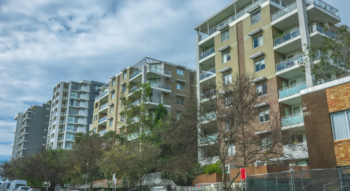Episode Notes
Incarceration rates are on the rise in Australia. Is there a crime wave or is it media hype? Join host Ginger Gorman as she cuts through the clickbait to uncover the truth about crime in Australia and who we lock up. Professor Eileen Baldry AO, a leading criminologist from UNSW, separates fact from fiction, while Justen Thomas, an advocate for vulnerable youth offers a unique perspective from firsthand experience. Get ready for a confronting discussion on the real story behind the headlines and whether incarceration is truly the answer.
Transcript
Ginger Gorman (0.01):
I want to tell you about a podcast that I absolutely love listening to. It’s Outrage and Optimism, a useful weekly guide for anyone wanting to make sense of the complexity of the climate conversation. Whether you are suffering from climate grief or anxiety, are already fired up and full of hope and taking action, or somewhere in between, the podcast will help you navigate feelings of outrage and optimism, and leave you feeling informed and inspired. Hosted by Christiana Figueres, Tom Rivett-Carnac, and Paul Dickinson, the trio share their expertise, insight, and humor with the world’s climate thought leaders, making the show, the leading global independent climate podcast. Search Outrage + Optimism wherever you get your podcasts, I’d highly recommend you check it out.
(00.55):
Just want to give you a heads-up that we’ll be discussing sexual assault in this episode. If the topic troubles you and you need someone to talk to, we’ve put the numbers for 1-800-RESPECT, Lifeline, and Kids Helpline in our show notes.
Justen Thomas (0.1.10):
I didn’t have much of a childhood. I was taken away from my family at a young age, put into an institution kind of thing.
Ginger Gorman (01.21):
What first brought you into contact with the justice system?
Justen Thomas (01.30):
Having unpaid fines and getting locked up from…
Ginger Gorman (01.33):
Justen is in his mid-forties. He’s a Dharawal man who grew up in southwestern Sydney and now lives in Queensland. He was out and about when we talked over the phone, so the line is a little bit scratchy. If you didn’t catch it, Justen told me he had a tough growing up. He was removed from his family due to violence and placed in institutional care. He was homeless for parts of his teens, and stuff like graffiti, loitering, and fare evasion led to fines. Not paying those fines led to jail.
Justen Thomas (02.09):
Because I was homeless at the time and wandering in and out of places at a young age, I just got a lot of fines traveling without a ticket, and also slipping train stations and trains and that.
Ginger Gorman (02.22):
And so, from what you’re saying, you didn’t really understand that those fines were building up?
Justen Thomas (02.23):
Well, my thing is that I don’t think I should be given those fines, because I was homeless, and what could I have done? Give me fines because I’ve been homeless? How can I afford to pay that money? And I only get certain amount of money as a child, so it escalated up to seven grand.
Ginger Gorman (02.48):
It’s a lot, isn’t it? And so you are a 15-year-old, you’re homeless, and you’ve got $7,000 worth of fines.
Justen Thomas (02.55):
Yeah.
Ginger Gorman (02.56):
Depending where you live in Australia and what sort of daily news you consume, you might’ve been hearing words like “spate” or “wave” or even “crisis” to describe crime in your community.
Professor Eileen Baldry (03.08):
Crime is not on the rise in Australia.
Ginger Gorman (03.11):
Eileen Baldry is a professor of criminology at the University of New South Wales, and a fellow of the Academy of the Social Sciences in Australia.
Professor Eileen Baldry (03.20):
Everything has been somewhat messed up by COVID, in the sense that during COVID, there was a greater drop in some crimes because lots of people stayed home. But there was a significant rise in COVID-related crime, most of which happened in New South Wales, and most of which have been found illegal.
(03.45):
In general, over the last 10 years, crime has been decreasing in almost all areas. The one area it hasn’t been decreasing is domestic violence, but drug use or drug crimes, break-and-enters, cars theft and so on, these have all been going down over the last decade and are still going down in Australia.
Ginger Gorman (04.13):
So what’s the real story about these crime waves? Recently, the Queensland government suspended its own Human Rights Act and legalised the practice of holding children indefinitely in police custody or watch houses. New South Wales doubled its maximum penalties for carrying a knife. Professor Baldry likens the public reaction to crime, especially youth crime, to moral panic, and it’s a familiar one at that.
Professor Eileen Baldry (04.42):
There was some work a very long time ago, social science work a long time ago. It pertained during the ’80s particularly to more criminalisation of drug use and drug selling, and that came from the United States, and that was another moral panic. “It’s all out of control and we’ve got to lock people up.” Really from the ’80s, and Australia followed the United States in this, the rise in locking up people for using drugs escalated dramatically.
(05.19):
And then we hit this whole process of the way in which the country thought about the use of prison and the use of arresting people. And so, this was one of the ways in which politicians won elections, or they thought they won elections. And it was a way in which shock jocks on radio said, “Everything’s out of control.” And of course, this is a trope which is really easy to make people fearful, and fear is the basis.
Ginger Gorman (05.56):
This is Seriously Social. I’m Ginger Gorman. And today on the podcast, what’s behind the so-called youth crime wave that has put communities and politicians so on edge? And will the tough-on-crime solutions actually help?
(06.29):
Let’s try to understand who is most likely to be locked up in Australia today.
Professor Eileen Baldry (06.35):
Almost everyone who goes to prison in Australia comes from a disadvantaged background. Let’s think in terms of the rate. What is the rate of Aboriginal and Torres Strait Islander people who are incarcerated per hundred thousand of Aboriginal and Torres Strait Islander people in each state and territory? What is that rate of those people who are incarcerated? Now, that rate is continuing to go up for Aboriginal and Torres Strait Islanders. It is outrageously high in many states and territories. It’s outrageously high everywhere. People with disability, particularly mental health, cognitive, psychosocial disability, are massively overrepresented. People with drug addiction, poverty, and disadvantage, are significantly overrepresented.
Ginger Gorman (07.38):
And try to remember that these groups overlap. Let’s go back to Justen, who was a teenager in the ’90s when his run-ins with the law started. He was just 12. He was in state care and had no idea that he had a cognitive impairment. That was 30 years ago, but not much has changed for kids like him.
Justen Thomas (07.58):
Very slow learning, very in the brain where I’m not a literate person online, doing computer things and that.
Ginger Gorman (08.09):
Was that taken into account when you… In terms of how you were being treated by the police, did they take your impairment into account?
Justen Thomas (08.20):
No. I was having those seizures, too. I was diagnosed with epilepsy at a pretty young age.
Ginger Gorman (08.30):
So how did those things add up for you in terms of the justice system? Can you talk me through that?
Justen Thomas (08.35):
I reckon I’m used to being in justice system because I found it was nowhere stressful to live and free food and that. I got used to the system after numerous [inaudible 00:08:53]. There’s no point being out in the freedom, is there, with all the stress going on there? So I’ve got used to being in the justice system for a lot of years. I wasn’t getting support or care at the time either. When I needed help, there was no one there. When a lot of stuff was going down, there was never any support or advice from anyone either. I was even labeled all my life as well, “spastic, retard”, things like that.
Ginger Gorman (09.29):
By who?
Justen Thomas (09.31):
The DoCS, Family & Community Services and that. All the evidence that I’ve been labeled all my life by people. I’ve been randomly approached by law enforcement, and warrant searches and all that from the law enforcement, and them to come up with the system where I get locked up because I can’t pay fines, or what was the other one? I found that was just an unjust system.
Ginger Gorman (09.59):
And with the stress of being homeless, being randomly approached by police all the time because he had nowhere to go and nothing to do, left him feeling like, “What’s the point? Why obey the rules of society when the same society keeps letting you down?”
Justen Thomas (10.14):
I found there’s a lot of other generation, my generation, that were in that, falling through the cracks as well.
Ginger Gorman (10.21):
Yeah. So you feel like it’s a system that’s against you?
Justen Thomas (10.25):
It was, yeah.
Ginger Gorman (10.27):
Yeah.
Justen Thomas (10.30):
Because a friend that I know, a lot of other people have committed suicide, and it led to him take on a drug habit and all that, to avoid stress and that.
Professor Eileen Baldry (10.39):
It is the combination of those. So you are an Indigenous person who has a disability, has a drug issue and comes from a highly disadvantaged community or background. You are significantly, 14, 15, 20 times more likely, to end up in prison. This is what we call the compounding effect of each of those factors. That means that that group of people is far more likely from a very early age to be connected to what we call the criminal justice system, but which is really a criminal legal system.
Ginger Gorman (11.29):
Why is this happening, that these specific groups are so much more likely to be incarcerated?
Professor Eileen Baldry (11.37):
It’s not so much an individual’s failing or an individual’s purpose that they are particularly unhealthy. It has far more to do with the social and structural ways in which our society is organised. So people who are poor, disadvantaged, come from a marginalised group, are far more likely to continue to have poor health. Why is it that when we look at the profile of the majority of people in prison, we see very similar things to that?
(12.20):
It’s socio-structural matters, matters that are to do with where a person is born, where a person grows up, whether they experience violence early in their lives, whether their lives are disrupted as children, whether they receive the kind of education that a person with disability has a right to, but they don’t necessarily receive that. Looking at whether they have access, whether their parents or their parent or the people who care for them have access to all of the things that would ensure that that person has all of the options in their life that they should have access to.
Ginger Gorman (13.09):
I want to take a minute to acknowledge victims of crime. Even if the crime wave rhetoric is being fueled by incidents of crime as opposed to anything backed by statistics, it doesn’t make those incidents less frightening. If you’ve been robbed at knife point or had your car stolen or woken up to find your home was broken into, it can be traumatic and difficult, and I get why you want to feel safer.
(13.34):
The thing is, Justen was a victim of crime too. He was removed from a violent home. Professor Baldry says people with disability are overrepresented in the prison population, but they’re also more likely to be victims of crime. Now, there are a few different ways people can be locked up In Australia. The people convicted, sentenced, and serving months or years in prison are just one group. People can spend weeks in a police watchhouse or a youth detention center, some months, even years, on remand awaiting trial, or they can be deemed mentally unfit to plead and be held indefinitely in institutional care.
Professor Eileen Baldry (14.17):
Marlon Noble is a Western Australian man. When he was, I think, just 17, was accused of sexual assault of some girls. He has quite a profound intellectual disability from having had a significant disease as a small child. He grew up in a very poor and disadvantaged place. He is an Aboriginal man, and he had very poor access to schooling, and to work, of course, virtually no work, and was someone who could be targeted for this offense. The police arrested him, despite the fact there was almost no evidence, and was arrested.
(15.14):
He was found unfit to plead. Unfit to plead means that the judge, magistrate, found that his mental capacity, his intellectual capacity, meant that he was not able to understand what was going on well enough, and that meant that he could not plead guilty or not guilty in a safe way. But the argument from the prosecutor and the police was, “This man is a danger,” despite the fact that he hadn’t been found guilty, and despite the fact that some years later it was found that he did not commit this.
(15.56):
He was held indefinitely in a prison. And if not for the fantastic work of a woman, Ida Curtois, who, she was sort of a foster parent to him, and a couple of fantastic legal people in Western Australia, and real pressure from other places in Australia that this was a serious miscarriage of justice, he would still be there.
Ginger Gorman (16.33):
I want to quote from one of your papers. You said, “The law is a blunt and often punitive instrument.” What do you mean by that?
Professor Eileen Baldry (16.44):
Look, criminal law in Australia… Well, everywhere in Anglo-type countries, it’s blunt because it just goes down a singular route of “What is this person accused of? What is the evidence for it? What’s the evidence against it, and under what legal rubrics can we deal with this person?” And for someone like Marlon, the root was, he’s been accused of the crime, he has been found unfit to plead, so he does not face court, and therefore, it’s not proved either way.
(17.28):
The unfit to plead, though, suggests that the government, or that the court, rather, can order him to be held, or anyone to be held, until they are deemed cured or fit. Now, this happens across Australia every day, and in every jurisdiction. And what people are usually held under is some form of mental health act. And there are, in every state and territory, review tribunals. In New South Wales, we have the Mental Health Review Tribunal, which is responsible for reviewing all of those sorts of orders that the court can bring down.
(18.25):
Now, the problem is, there are lots of problems with it, but a significant problem with this is that there is no real legal remedy to address this other than a review tribunal saying. “This person is fit to be released.” And it goes either way, but there isn’t, like there is with someone who is found guilty and given a sentence of, let’s say, two years. At the end of two years, they must be released. That doesn’t exist, because the law does not have that rubric for people held indefinitely under those kind of laws.
Ginger Gorman (19.17):
One of the things that you are also saying is that public health policies must address systematic factors and not just focus on individual behaviour.
Professor Eileen Baldry (19.29):
One of the clear things that the law does is it focuses on an individual’s behavior. We have many examples in our work over the last 20 years of people, particularly with cognitive disability. Now, that is intellectual disability, borderline, FASD.
Ginger Gorman (19.53):
FASD stands for fetal alcohol spectrum disorder.
Professor Eileen Baldry (19.56):
I mean, there isn’t a medication that resolves that. This is a permanent impairment in the brain, and the expectation that you will hold someone and look at their individual behavior and say, “Well, you don’t seem to have improved,” means that they’re kept in indefinitely. What we are doing is locking up the most vulnerable people. Now, there’s 10% of people who are locked up who are not vulnerable, and perhaps they should be locked up.
(20:34):
But what we need to understand is how we as a nation and how we as citizens are supporting what is, in fact, a breach of human rights, and a breach of a person’s right, who has disability, a person’s right to a fair and equitable life. This group does not have access to the kinds of supports that a middle class or a wealthier family can provide for their child. They are far more likely to be the subject of police attention, particularly if they are Aboriginal or Torres Strait Islander, because we are talking about racism. We are talking about a flow-on of colonialism which targets Aboriginal people, even if it’s a subliminal targeting.
(21.35):
And we just saw today a report in The Guardian that New South Wales police use violence against Aboriginal people in almost half of their interventions. And this is when… Aboriginal people form 3% of the population. So, what we are talking about here is that all of these steps, being in out-of-home care, being removed from your family, experiencing violence in your family, being removed from your family, going into out-of-home care, and in many instances, continuing to experience violence in out-of-home care… All of these things add up to making a person highly vulnerable to being managed by the police.
Ginger Gorman (22.28):
What do you make of the Queensland Government introducing even tougher sentencing for young people there?
Professor Eileen Baldry (22.34):
It’s outrageous, and it is a breach of those children’s rights. The majority of those young people will have a disability. We know this from all of our work across a number of jurisdictions, that the proportion of young people held in detention, in juvenile detention, or at least held in watchhouses, are far more likely to have a disability, probably what we call complex support needs. They probably have a cognitive disability, a mental health disability, and also have an extremely disadvantageous background.
(23.19):
Now, the breaching, almost inevitably, because we’ve looked at this, refers to that they have disobeyed one of the requirements, or two or three of the requirements, of their bail, such as “You cannot go within 500 meters of this place,” or “You must be home, or wherever you are living, by 6:00 PM,” or “You must not be in possession of any drugs.” Now, someone with a cognitive disability finds that extraordinarily difficult to one, understand, two, deal with, three, obey. Because most kids, and this is the case with most kids anyway, child development tells us that they are not mature enough, even by the age of sort of 15, generally, to deal with the impulses.
(24.22):
Kids are impulsive. Kids with cognitive disability are especially impulsive, and find it extremely difficult to work out in their head, to think it through, because that’s the nature of their disability. And so, these kids are being breached because of their disability.
Ginger Gorman (24.43):
In 2021, Australia’s Productivity Commission noted that nearly 60% of people currently incarcerated had been in prison before. The report concluded that prison and its approaches to rehabilitation are both ineffective and expensive, costing Australian taxpayers more than $5 billion a year.
(25.04):
How could we do this differently? And if we did do it differently, what would the impact be?
Professor Eileen Baldry (25.10):
We do have some very good ways in which we can deal with all of this, rather than what we are doing now. One, there are some fairly straightforward laws that we could change. One, we could raise the age of criminal responsibility to 15, which is the standard that the United Nations asks for, and it is the standard that is used in many European countries. Most of our jurisdictions still have the age of 10 as criminal responsibility. That means a 10-year-old can be arrested and can be incarcerated, despite the fact that they are not mature yet.
(25.57):
Second, we should ensure that all children, all children, have the option and access to early childhood education. What we see with those children who at four years old, or three and a half or four years old, go into an early childhood education setting and they have a disability, particularly a cognitive disability, it is recognised much earlier than it currently is, especially for Aboriginal and Torres Strait Islander kids. And that should be absolute standard. It shouldn’t be special. It should be what should happen everywhere. That would help enormously.
(26.49):
Third, we should ensure that we support parents, single parents or parents who are struggling, because almost all of these kids who get managed by the police end up in adult prison as well. And if we gave them the kind of support that, again, a middle class or a wealthier family has at their disposal, that would help that family enormously so that that child is not managed by the police. Fourth, when they get to ordinary school, primary school, high school, we do not treat what has been called challenging behaviour, we do not treat that as a crime. And we do not call the police to arrest a 13 or 14-year-old in a school who is, yeah, behaving very badly, but we know how to talk kids down.
(27.57):
We know how to support kids, and we do it in other places. We just don’t do it in highly disadvantaged, poor places, remote places, places where Aboriginal kids are growing up. There’s much more, but finally, police should not be the first responders to people with disability. A significant number of the people who are killed by police are people who have disability. There are examples in various places across the world where civil society, people who know how to support people with disability, are there at the time with the police, or go instead of the police. But they are the ones who interact with the person, rather than the police assuming that they’re going to draw their guns or their tasers and shoot.
Ginger Gorman (28.55):
So there are solutions that are more humane and much more effective ways to reduce crime even further than locking people up. Unfortunately, it’s a message that doesn’t sell quite as many newspapers or attract as many clicks.
(29.12):
As for Justen, he has managed to get himself out of the system with help from a legal services officer named Jane, and a few others who cared enough to give him the support he desperately needed.
Justen Thomas (29.26):
I just realised that, one day in 2010 or something, to reflect on my past and where I want to head in my path and stopped hanging around people I used to hang around with and that. I just chose to pursue another path, and just move away and a lot of things, too.
Ginger Gorman (29.50):
Now he’s an advocate who shares his story with the researchers and policymakers who have the power to make change, and this is his message to them.
Justen Thomas (30.00):
They want to lock them up. I say, is that really going to deal with this issue? Is it really going to deal with the issue? Is it long-term? Ideally, is that what you want to do? Lock people up so they’ve got criminal records? Or do you want to get there and send them out to country to learn a bit about culture. Send them out in the farms and in the country, they learn culture.
Ginger Gorman (30.23):
How do we stop kids like you falling through the cracks?
Justen Thomas (30.28):
Be patient, have some consideration, and don’t be quick in the judgement, and see if you can offer them support and guidance. Kids get bored easily, and I think a bit of art and activities and a weekend away or something for the kids and that, youth programs and that. There should be a diversion program for the youth and that, rather than just like they’re doing right now, locking them up in the thing.
Ginger Gorman (31.05):
Thanks for listening to Seriously Social. I’m Ginger Gorman. This podcast is produced on Ngunnawal, Ngambri, Yugerrah, and Turrbal Land, and we pay our respects to Elders past and present. Seriously Social is produced by Kim Lester, Chez Robinson, engineered by Mark Gageldonk, aka Baldy, and our Executive Producers are Bonnie Johnson and Clare McHugh. It’s an initiative of the Academy of the Social Sciences in Australia.
(31.34):
Next time on Seriously Social, housing density, and the missing middle. Will we ever get the balance right? See you then.
Useful Links
- Lifeline 11 13 14
- 1800 Respect 1800 737 732
- Kids Helpline 1800 55 1800
- Outrage + Optimism Podcast
- National Children’s Commissioner slams “shocking” new Queensland youth justice laws Australian Human Rights Commission
- New South Wales Government to double penalties for knife crimes NSW Government
- The sad story of Marlon Noble ABC Ramp Up
- NSW police use force against Indigenous Australians at drastically disproportionate levels, data shows The Guardian




